Adventures in Paradise Revisited: Turner Classic Movies Film Festival 2015
 There ought to be a word for being so late that you’re not even considered late anymore.
There ought to be a word for being so late that you’re not even considered late anymore.
That would be me, writing about the 2015 Turner Classic Movies Film Festival. (Yes, you read that correctly. 2015.)
I’m not even going to bother to give excuses on why it has taken me more than a year to write this post. I will say, though, that once I passed the six-month point, I decided to purposely hold off until closer to this year’s event. Kind of like why my Christmas tree is still up. I mean, it’s almost May already – why take it down now? Christmas is practically right around the corner! (Of course, I’ve been saying that for four years now, but that’s another story for another time.)
So, as my opening salvo for this year’s TCM Film Festival – which, incidentally, I’ll be covering for this blog as a member of the press! – I’m pleased to take a step back in time, to spring 2015, and share with you my TCM Adventures in Paradise: Part 3!

The trivia contest was held in Club TCM, which is in the Blossom Room — site of the first Academy Awards banquet.
Trivia Contest: So You Think You Know Movies?
My first event of the festival was participating in a trivia contest, So You Think You Know Movies, hosted by the witty and erudite Bruce Goldstein, of New York’s Film Forum. And seated in the audience were Illeana Douglas (granddaughter of Melvyn Douglas), Rory Flynn (daughter of Errol Flynn), and William Wellman, Jr., son of the famed director. The contest provides the opportunity to meet new people (you can join a team on the spot), and it’s loads of fun, with Goldstein regularly cracking wise, but for your average classic film lover, the questions were pretty darn hard. Here are two of them – try your hand at the answers, which I’ll provide at the end of the post. And no fair using the Internet for intel! (By the way, I knew the answer to the first question, but not the second.)
- What is the name of the movie that starred Illeana Douglas’s grandmother?
- What is the name of the movie that parodied the famous hitchhiking scene from It Happened One Night?

Andrews and Plummer are still good buddies.
The Sound of Music (1965)
The opening night film for 2015 was The Sound of Music, that sweeping, classic musical about a postulant who leaves an Austrian abbey to become the governess in the home of a Naval officer and his seven children. (Who just happen to all be great singers.) Before the film was shown, the packed audience in Grauman’s Chinese Theater (yes, I know it’s called something else now, but it’ll always be Grauman’s to me) was treated to an interview by Ben Mankiewicz with the film’s stars, Julie Andrews and Christopher Plummer.
“It’s the primal family movie of all time,” Plummer said. “This is an extraordinary sort of fairy story brought to life. It’s the last bastion of peace and innocence in a very cynical time.”
Andrews recalled the shooting of the film, stating that “everyone was at the peak of their strength.”
“It has glorious music, beautiful alps, the children and the nuns, it’s about family,” Andrews said. “You can pick any one of those.”
Plummer and Andrews – who appeared to have maintained a delightfully close relationship (“We’re great, great chums,” Andrews affirmed) – both praised the different performers in the film, three of which were in the audience: Heather Menzies (Louisa), Debbie Turner (Marta), and Kym Karath (Gretl). Also present were three of Andrews’s real-life daughters, Jennifer, Amy and Joanna.

Hoffman turned in a riveting performance as Lenny Bruce.
Lenny (1974)
The festival’s many highlights included the presentation of the 1974 film Lenny, which portrayed the life of controversial stand-up comedian Lenny Bruce. Not only was it the first time I’d ever seen this outstanding picture, but before the showing, the film’s star Dustin Hoffman was interviewed by actor Alec Baldwin. WOW.
Both Baldwin and Hoffman had entertaining and unsurprisingly sharp senses of humor – the word “riveting” is the best descriptor I can think of when trying to convey the experience of watching these two in conversation.
Baldwin told the packed house that he’d seen Lenny many times – it was his introduction to the work of director Bob Fosse, the life of Lenny Bruce, and the music of Miles Davis. “I’m kinda speechless whenever I see this film,” he said.
Hoffman praised the “extraordinary” performance of actress Valerie Perrine, who played Bruce’s wife, Honey, in the film, and Baldwin echoed the sentiment: “I don’t think I’ve ever believed two actors as much as [Hoffman] and Valerie,” he said.
The film, which was nominated for six Academy Awards, was presented in a documentary style, driven by interviews conducted with those closest to Bruce, including his wife and his mother, played by Jan Miner. Hoffman’s preparation for portraying the comic included writing down his routines longhand. He also visited Bruce’s mother and his best friend.
Hoffman had high praise for the film’s director, Bob Fosse. “One of the things I objected to with Fosse was the way he posed me. But when you see it, it looks great, so he was right and I was wrong. I admit a lot of stuff 40 years later,” Hoffman joked. He told the audience that another example of Fosse’s genius was that he cast Valerie Perrine before he met Honey Bruce. “Valerie was the reincarnation of Honey Bruce,” he said. “They were like mother and daughter. It was unbelievable casting.”
Hoffman also talked about his experiences starring in The Graduate and Midnight Cowboy, but one of the best parts of the interview came when Hoffman and Baldwin shared stories about famed comedian Buddy Hackett, each mimicking Hackett’s distinct voice. It was a positive scream, y’all. Here’s a clip. (Please note that the clip contains profanity – if you’re easily offended, you might want to skip it.)
Presentation: A Surreal Existence
One of the most fascinating special presentations at the festival was “A Surreal Existence,” which featured three men whose real-life stories were told in feature films. Interviewed by TCM’s Ben Mankiewicz, the men shared what it was like to have their lives depicted on the big screen.
Mark Schulz, played by Channing Tatum in Foxcatcher, is an Olympic and world-champion wrestler whose brother, Dave, was shot and killed by the eccentric millionaire John DuPont, who was sponsoring both men. Schulz disputed some of the specifics of the film, but “as far as letting the audience know how it felt to be Mark Schulz, it was 100 percent accurate,” he said. He also told the audience that he enjoyed Channing Tatum’s performance and was disappointed that he wasn’t nominated for an Academy Award. “I thought the actors and the director all did a great job.” He admitted, though, that seeing his brother’s murder depicted on screen was “pretty awful.”
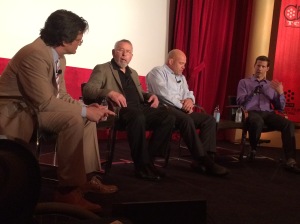
Ben Mankiewicz with Tony Mendez, Mark Schulz, and Aron Ralston.
“I cried my eyes out,” Schulz said. “When I saw it on the screen, how it really happened, I just can’t imaging the physical pain that he must have gone through, and the confusion mixed with the pain.”
Aron Ralston is the outdoorsman who was trapped between boulders during a canyoneering accident and cut off his own forearm to extricate himself. His story was portrayed by James Franco in 127 Hours – which was the amount of time that Ralston was trapped. Ralston said that Franco “nailed” his performance – “he knocked it out of the park,” he said – but emphasized that his mother was the real hero of his story.
“She went into decisive action – in 2003, she managed to break into my online email account, reset my password, and get word to all my friends. She spearheaded the entire [search] operation.”
In Argo, CIA operative Tony Mendez was portrayed by the film’s director, Ben Affleck (Mendez joked that Affleck “wasn’t good looking enough”). In 1980, Mendez spearheaded the “Canadian caper” – an intricately planned scheme to rescue six American diplomats trapped in Iran. To pull off the plot, Mendez arranged for the diplomats to pose as a Canadian film crew making a fake movie called Argo.
The story of the successful ploy was declassified by the CIA in 1997, when it was revealed to the public. Mendez maintained that the declassification was “not to my liking.”
“It was not a choice that I would have made,” Mendez said. “Why would we expose our best secret? I could have taken that to my grave.” Ben Mankiewicz called Mendez “the most reluctant hero of reluctant heroes.”
 Rififi (1955)
Rififi (1955)
This was my second time seeing this Jules Dassin-directed French language noir about a well-planned heist that goes terribly awry. In introducing the film, author Eddie Muller told the audience that they were “officially the smartest people at this festival.”
The film was based on a novel by Auguste Libertant, who grew up as a street kid in France and “decided when he saw The Asphalt Jungle that he had to write the French version of that.” Indeed, Rififi is quite reminiscent of The Asphalt Jungle, with its mélange of flawed, disparate characters who come together to carry out the heist and then, one by one, meet their respective dooms.
Incidentally, “Rififi,” we learned, is not a real word – it’s a slang term. The American equivalent is “rumpus” or “dust-up.”
You’re welcome.

Ron and Allen Fields, W.C.’s grandsons, strike a pose with Illeana Douglas. (Photo courtesy of wcfields.com)
The Bank Dick (1940)
This W.C. Fields vehicle has long been one of my favorite comedies – there’s no point, really, in trying to describe the wacky plot – suffice it to say that if you like to laugh and you’ve never seen The Bank Dick, you owe it to yourself to check it out.
Before the screening of the film, Illeana Douglas interviewed Allan and Ron Fields, the grandsons of the famed comedian. From Ms. Douglas and the actor’s grandsons, brothers, I learned a great deal about Fields:
- Fields made his film debut in 1915.
- He was the oldest of five children.
- One of his first jobs was a professional drowner. It was “one of the reasons why he later hated water so much,” said one of the grandchildren.
- Fields was a Franklin Roosevelt fan until FDR said that no movie star should receive more than $25,000 per movie.
- All of his films were written by Fields under a pseudonym.
- Fields and Mae West did not get along on My Little Chickadee.
- Fields never followed the script: “He just went off on other tangents.”

Colleen Moore was a joy to behold.
Why Be Good? (1929)
This was my only silent screening of the 2015 fest – and it was a sheer delight. Why Be Good? is a romantic comedy starring Colleen Moore as a salesgirl who falls in love with the wealthy heir of the store where she works.
Author Cari Beauchamp (whose last name, I’ve now learned, is pronounced BEE-chum) was on hand to introduce the film and provide information about its star, noting Moore’s “charm and effervescence.” By 1923, Moore was the personification of the Jazz Age, and in 1927 and 1928, she was the biggest female star in Hollywood. In 1929, Clara Bow emerged as a major personality and Why Be Good? was First National Pictures’ attempt to give Bow “a run for her money,” Beauchamp said.

Seeing 1776 was a highlight of the festival. (Sit down, John!!)
1776 (1972)
Planning one’s TCM film fest schedule is an exercise that is notoriously fraught with agonizing conflicts. My worst one of the 2015 fest involved the screening of 1776, which featured two of the film’s stars – William Daniels and Ken Howard – and the screening of Malcolm X, introduced by the film’s director, Spike Lee. Both took place at the same time. I’ve been a Spike Lee fan since I saw his first movie, She’s Gotta Have It, in 1986, which was screened at a journalism convention I attended in Dallas, Texas. On the other hand, 1776 is possibly my very favorite musical – and y’all know that I’m no musical fan. But 1776? I have the soundtrack on CD and I know every word to every song. In the end, I decided I just couldn’t pass up the chance to see John Adams (Daniels) and Thomas Jefferson (Howard), or the opportunity to sit in a darkened theater and sing all the songs. (And you can imagine, when Ken Howard passed earlier this year, how gratified I felt that I got the chance to see him.)

Hollywood Home Movies featured the son of Henry Koster, Steve McQueen’s first wife, and Jane Withers.
Presentation: Hollywood Home Movies
This Club TCM special presentation featured actual home movies from Robert Koster, son of director Henry Koster; Neile Adams, first wife of Steve McQueen; and former child actress Jane Withers. This event was fascinating – the movies included shots of Gary Cooper and Esther Ralston aboard a yacht in 1928; the two were filming Gregory LaCava’s Half A Bride, a silent film which is now lost. Another showed a 1935 party at the home of Cedric Gibbons and his wife, Dolores Del Rio – the guests included John Gilbert, David O. Selznick, King Vidor and Gary Cooper. There was also Danny Kaye and Walter Slezak on the set of The Inspector General, along with Kaye’s wife, Sylvia Fine, Alan Hale, and Barbara Bates, and Steve McQueen, seen both at work (on the set of the Thomas Crown Affair) and at play (with his children). During the segment on the McQueen home movies, Neile Adams recalled that the couple’s first house was in Palm Springs, “on the wrong side of the tracks.” Adams said that actor Kirk Douglas stopped by the house one day and told McQueen, “’You’re a #$@%-ing movie star – move out of here!’ So we did.”
The highlight of this event, for me, was Jane Withers’ narration of her many home movies – she was a sheer delight. I wanted to bundle her up and take her home with me. “Good gravy – look how fat I am,” she said while looking at one scene. “I got about three thousand letters from girls that said ‘I’m glad you’re fat like I am.’” Withers’ home movies ranged from scenes with her dogs in her swimming pool to co-stars such as Jackie Cooper (“I just adored him!”), Warner Baxter (“He was so gracious to my mother and I when we first came to Hollywood in 1932.”), and Freddie Bartholomew (“What a nifty person he was!”).
“Oh golly,” Withers said, “I’ve had such a lovely life.”
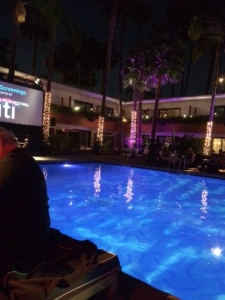
The view from my seat was gorgeous! (And Richard Roundtree was, too!)
Earthquake (1974)
I had no great desire to see the movie Earthquake – one of those big-budget, star-studded disaster films from the 1970s – but this screening had two things going for it: (1) it was presented poolside at the Hollywood Roosevelt Hotel, and (2) Richard Roundtree.
Enough said.
Roundtree, who is perhaps best known for his portrayal of John Shaft (that black private dick who’s a sex machine to all the chicks), had a featured role in Earthquake, as a motorcycle stuntman.
“That was one of my earlier attempts to get away from the Shaft character,” Roundtree told Illeana Douglas, who interviewed him prior to the airing of the film. “It did wonders for me, but not for my career.”
In his younger years, Roundtree played college football (“And not bad,” the actor recalled).
“I loved the cheering of the crowd,” he said. “The applause was the motivating factor for me to become an actor. The applause at the end of the night is the biggest paycheck that an actor can have.”

Una Merkel (left) walked off with the whole picture.
Don’t Bet on Women (1931)
This was one of the two pre-Codes I saw during the festival – and, boy, was it a gem! Introduced by Ann Morra of the Museum of Modern Art, Don’t Bet on Women had not previously been seen in nearly 45 years, and its preservation was supported by TCM.
In this smart and funny feature, Edmund Lowe stars as Roger Fallon, a notorious woman-hater who believes that all women are bad (which is actually the original name of the film). Fallon’s best friend, the blissfully married Herbert Drake (Roland Young), bets Fallon that it will take him more than 48 hours to snag a kiss from the first woman he sees. As luck has it, though, the first woman Fallon sees is Drake’s wife, played by Jeanette MacDonald.
Notwithstanding the first-rate performances turned in by Lowe, Young, and MacDonald, the picture was stolen by Una Merkel, who played MacDonald’s delightfully dippy pal. If you haven’t seen this one yet, keep an eye out for the next time it airs on TCM. You won’t be sorry.
 The Smiling Lieutenant (1931)
The Smiling Lieutenant (1931)
My second pre-Code of the festival was The Smiling Lieutenant, starring Maurice Chevalier, Claudette Colbert, and Miriam Hopkins, and directed by Ernst Lubitsch. As mentioned in an earlier post, I didn’t have high hopes for it – first off, it’s a musical, and second, as a rule, I’m not all that wild about Claudette Colbert. So I was more than pleasantly surprised to discover that I loved this film, which focuses on a triangle between an officer of the Royal Guard (Chevalier), a leader of an all-girl band (Colbert), and a Viennese princess (Hopkins).
The film was introduced by Cari Beauchamp, who shared several juicy tidbits (my favorite!) about the film’s stars:
- Colbert and Hopkins did not like each other in real life.
- Hopkins had an affair with Chevalier during the making of the film.
- Both Colbert and Hopkins only wanted to be filmed from their right side – Hopkins won that battle.
- The film was made in both French and English. A native of Paris, Maurice Chevalier learned English while in a German prison camp during World War I.
- At the funeral of Ernst Lubitsch, famed director Billy Wilder sighed, “No more Lubitsch.” And equally famous director William Wyler sadly responded, “Worse – no more Lubitsch films.”
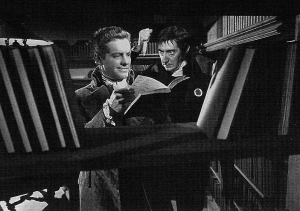
Noir? NOT.
Reign of Terror (1949)
This feature was my least favorite film of the festival. Set in the 1790s, it tells the story of a patriot (Robert Cummings) who is employed by a group of political moderates to bring down the regime of Revolutionary leader Maximilien Robespierre (Richard Basehart). Touted as film noir, the film was introduced by author Eddie Muller, who said, “They turned a movie about the French Revolution into a gangster movie.”
While I found the film to be mildly diverting, though, I certainly wouldn’t categorize it as noir – despite the fact that it was helmed by one of the era’s premier directors, Anthony Mann. And that’s all I have to say about that.

This movie is SO good, y’all.
Out of Sight (1998)
The most modern film of the festival was this feature, edited by Anne V. Coates, who was labeled by Ben Mankiewicz as “one of the great editors of all time.” Coates, who was nominated for an Academy Award for her work on the film, also edited Lawrence of Arabia (1962), Becket (1964), The Eagle Has Landed (1976), In The Line of Fire (1993), and Erin Brockovich (2000), among many others.
This was my second time seeing this feature – I saw it when it was released – and I enjoyed it even more this time around. This neo-noir stars George Clooney as an escaped convict and Jennifer Lopez as the federal officer who nabs him – and falls for him. If you’ve never seen it, take my advice – check it out. Today.

Sophia Loren was a knockout. (Photo courtesy of cometoverhollywood.com.)
Marriage, Italian Style (1964)
On the last night of the film festival, I got the chance to see screen legend Sophia Loren, live and in person, before the presentation of her film Marriage, Italian Style. Her co-star in the feature was Marcello Mastroanni, in one of 12 movies the two made together.
“I don’t think you can work on chemistry – either there is or there isn’t,” Loren said of her on-screen partner. “And as soon as I saw Marcello – there is.”
Loren also recalled winning the Academy Award for Best Actress in 1962 for her performance in Two Women. She told the audience that she was not present to receive the award.
“I said if I win, I’m going to faint, so if I faint in my house, it is okay, but if I faint on the stage, it’s going to be a disaster,” Loren said, adding that actor Cary Grant called to tell her that she won. “It was the most beautiful, beautiful moment of my life.”
 Other Festival Stuff:
Other Festival Stuff:
- The festival gave me the opportunity to meet, for the first time, the Dark Pages senior writer, Kristina, author of the Speakeasy blog. We’d been corresponding for 10 years, but we’d never met in person. It was a gas.
- After the Lenny screening, I went to the restroom and found that the line stretched outside the door into the hallway. I joined the end of the line and who was standing right in front of me but actress Diane Baker! I took a deep breath and offered up this capitvating line: “Excuse me, aren’t you Diane Baker?” Then I introduced myself, told her it was a thrill to meet her and then, I don’t know, I think I passed out from excitement.
- Seated in the audience of the Surreal Existence presentation was famed astronaut Jim Lovell, who was a special guest at the festival to introduce the film Apollo 13.
- Speaking of the Surreal Existence, while I was poolside at the Roosevelt Hotel, waiting for
ShaftRichard Roundtree to come out, I discovered that Tony Mendez (the CIA operative whose life was depicted in Argo) was sitting about 10 feet from me. At first, I was content just to be sitting so close to him, but then I had another sip of my gin gimlet and I got up, shook his hand, and thanked him for his awesome service. So exciting!
 And that wraps up my better-more-than-a-year-late-than-not-at-all look at the 2015 Turner Classic Movies Film Festival. Just when I think it couldn’t possibly get any better, it always does. I can’t wait to see what this year’s event will bring! (And this time it won’t take me nearly as long to share it with y’all!)
And that wraps up my better-more-than-a-year-late-than-not-at-all look at the 2015 Turner Classic Movies Film Festival. Just when I think it couldn’t possibly get any better, it always does. I can’t wait to see what this year’s event will bring! (And this time it won’t take me nearly as long to share it with y’all!)
One more thing – below are the answers to the questions posed at the So You Think You Know Movies event. How’d you do?
- She (1935) – Illeana Douglas’ grandmother was Helen Gahagan
- Way Out West (1937)


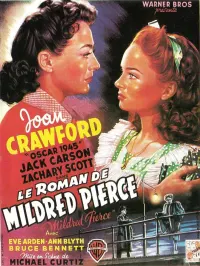




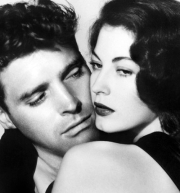
















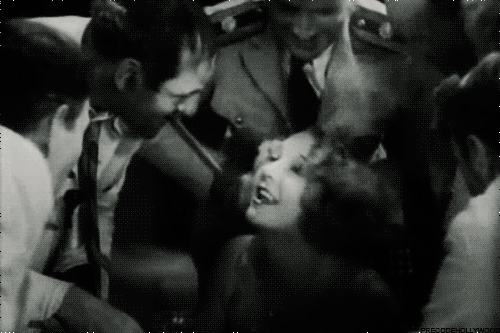


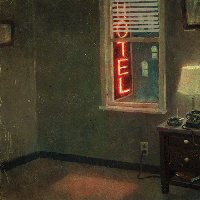
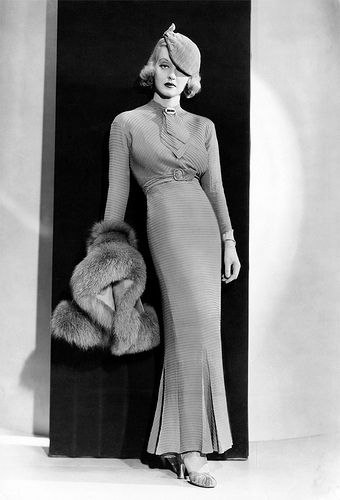



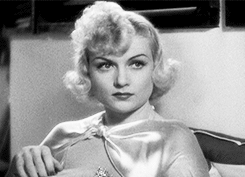
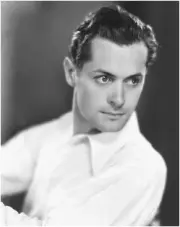
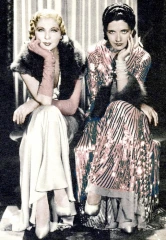

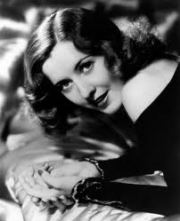



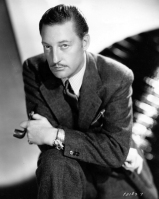




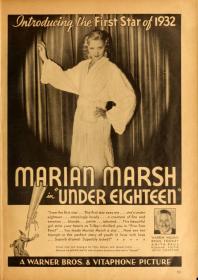
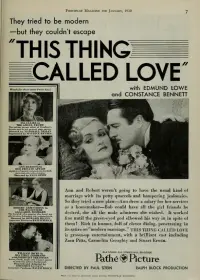

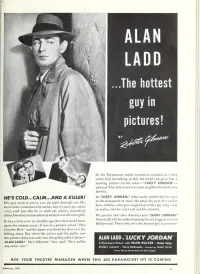
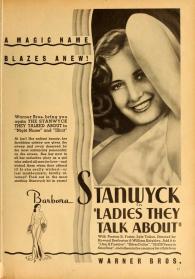

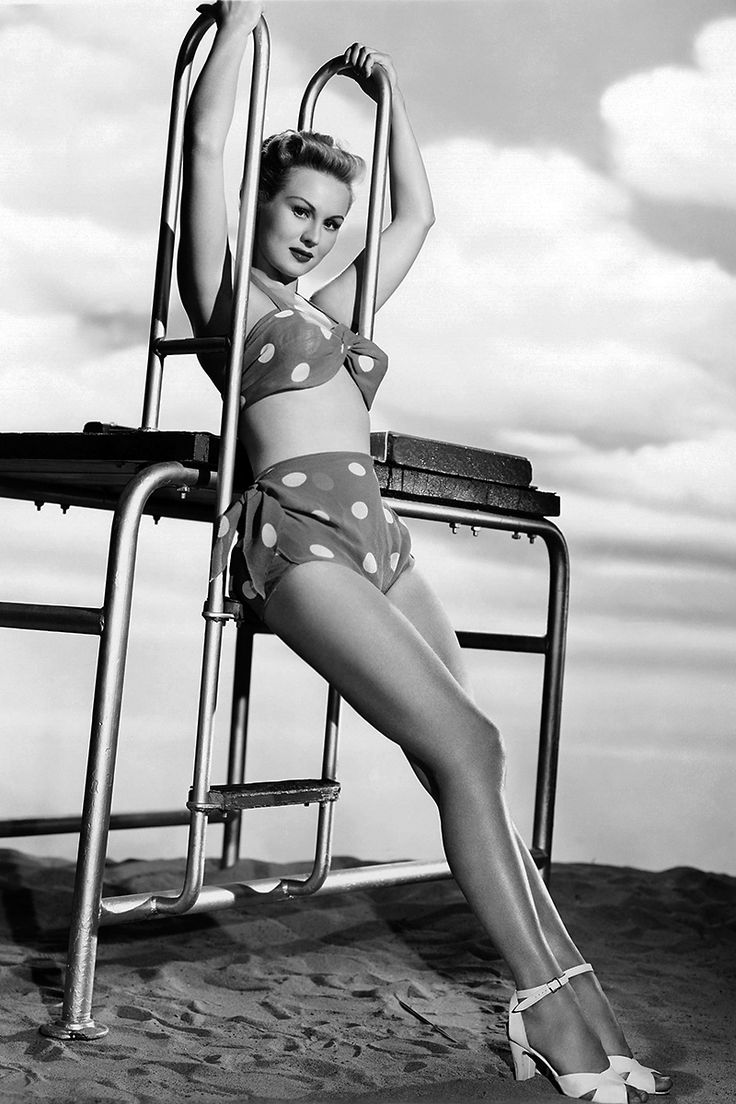



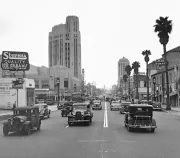
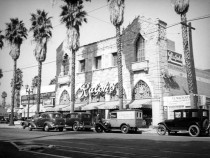


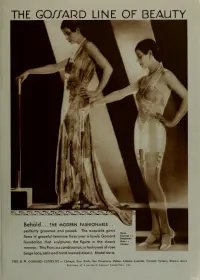

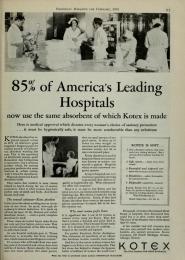

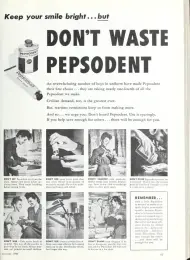


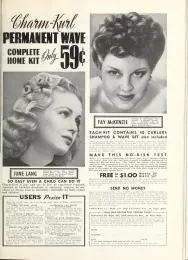


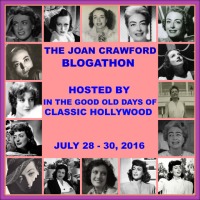


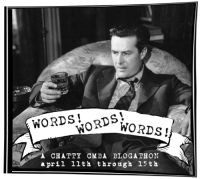

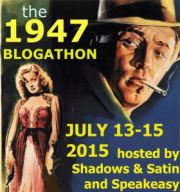
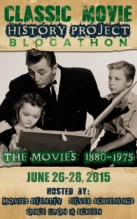
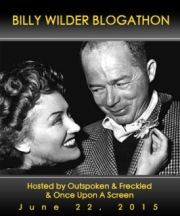


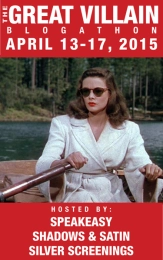


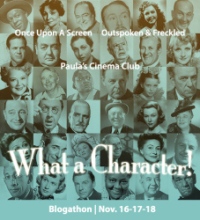
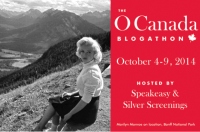


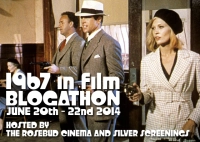


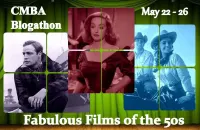
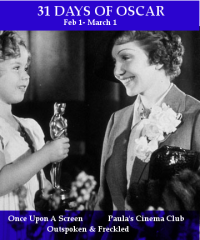
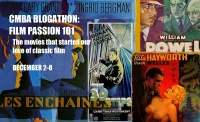







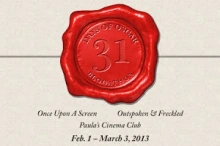

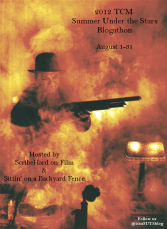


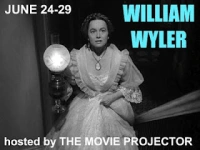





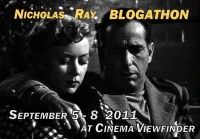

Karen, this is a delightful post – and it’s gotten me really excited for this year’s festival!
Lovely post! I felt I was right there with you! Thank you 🙂
Thank you, Hala! I hope you’ll enjoy my posts about this year’s event! 🙂
I agree, this is PERFECT timing! Great way to revisit those great memories from last year and warm up for this year’s fest! Meeting you in person was indeed a gas and can’t wait to see you again very soon 🙂
It was almost like being there, way back in 2015. I’m glad you saw 1776. It is a most compelling musical. I’m fascinated by that period of history since reading “Johnny Tremaine” in sixth grade.
Hooray for me. I got both trivia questions. Although, I’ll admit that on the first one my brain went “She”, no wait “Her”. What? Not “Her”. It’s “She”. How our minds play tricks on us.
Way to go on getting the questions right, CW! I’m about to post the entire quiz from this year’s contest! 🙂
[…] Adventures in Paradise Revisited: Turner Classic Movies Film Festival 2015 […]
Adventures in Paradise Revisited: Turner Classic Movies Movie Festival 2015|shadowsandsatin said this on February 4, 2019 at 10:48 am |